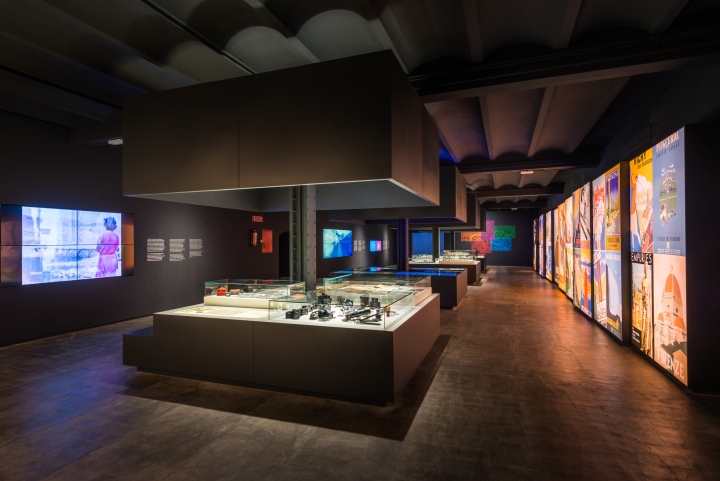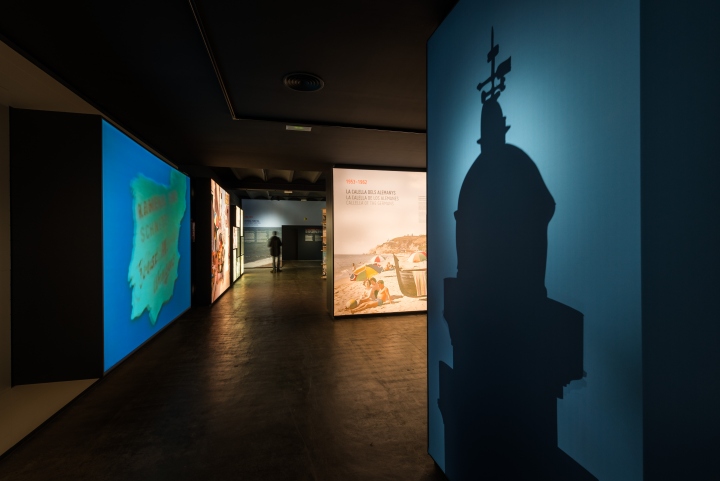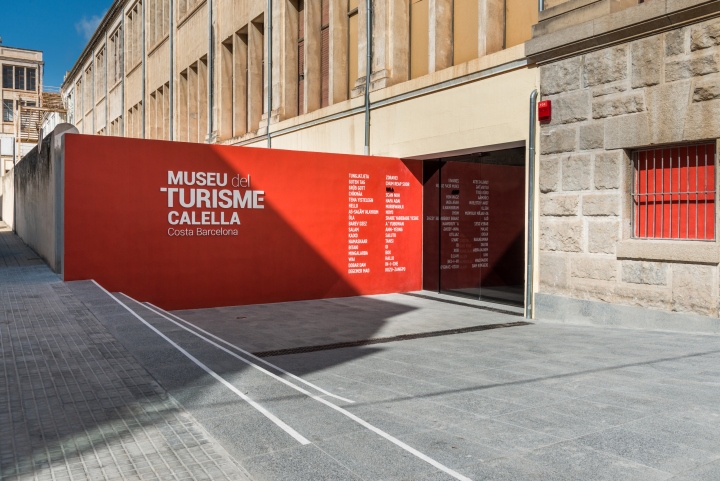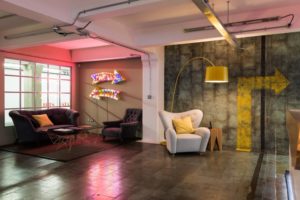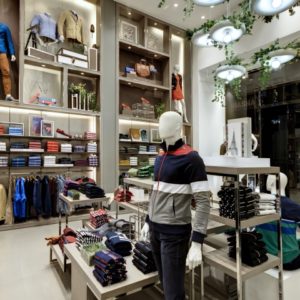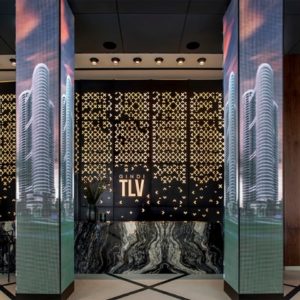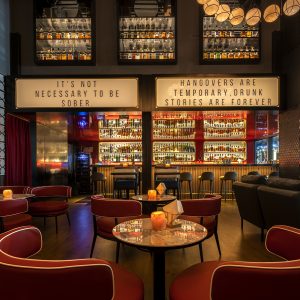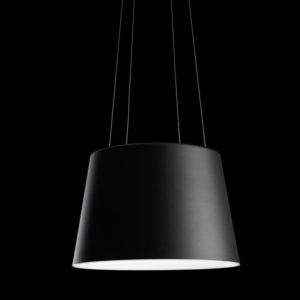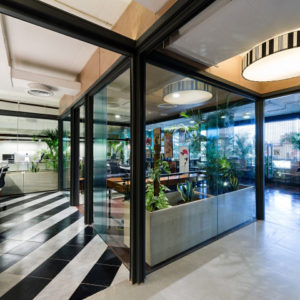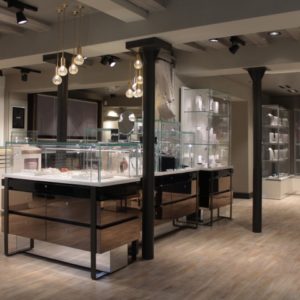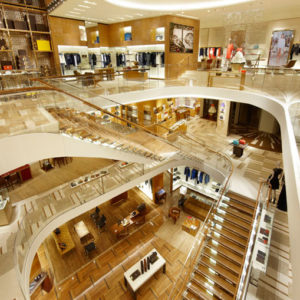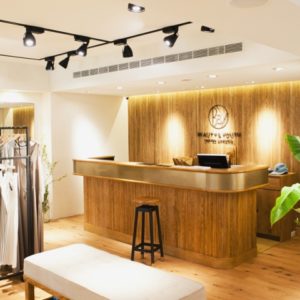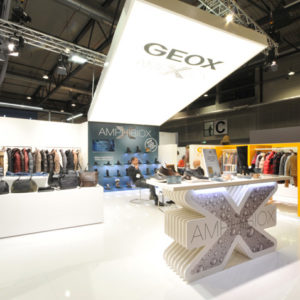
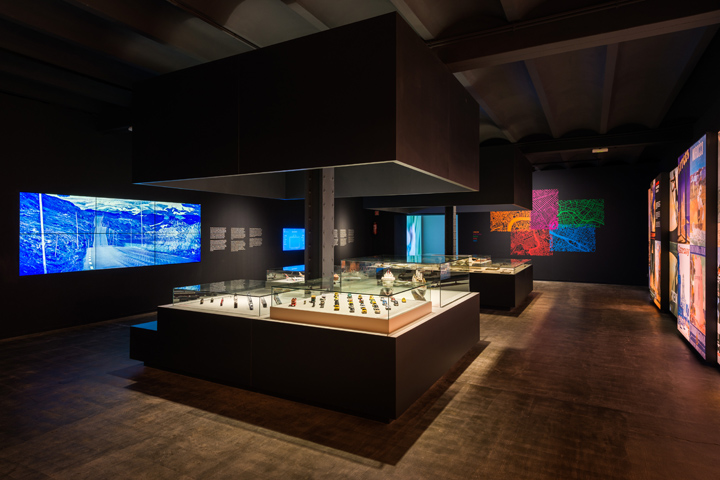

The Tourism Museum of Calella, a Catalan town pioneer in tourism holidays, occupies the basement of the former textile factory Llobet-Guri which is now municipally owned. Outside, a wall with the corporate color follows the ramp that leads to the lobby that welcomes multilingual visitors.

The space is divided in two areas: one dedicated to travel and tourism in general and the other specifically focused on the transformation of Calella after the generalization of this activity throughout the twentieth century.
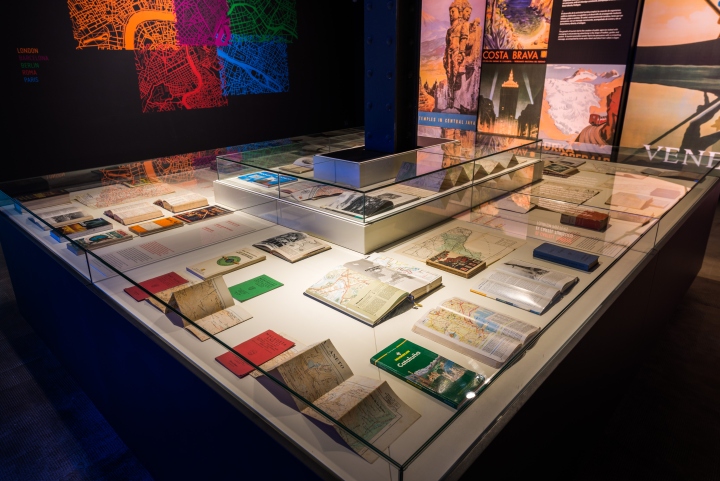
The project pretends that the industrial past of the rooms lives together with the present use of the exhibition. So, it was decided that part of the original architectonic elements –ceramic filler blocks and beams, concrete floor and iron pillars- be kept at sight. The rooms chromatically treated in dark gray are neutral containers that highlight the different elements, each with its own light and volumetrically austere.
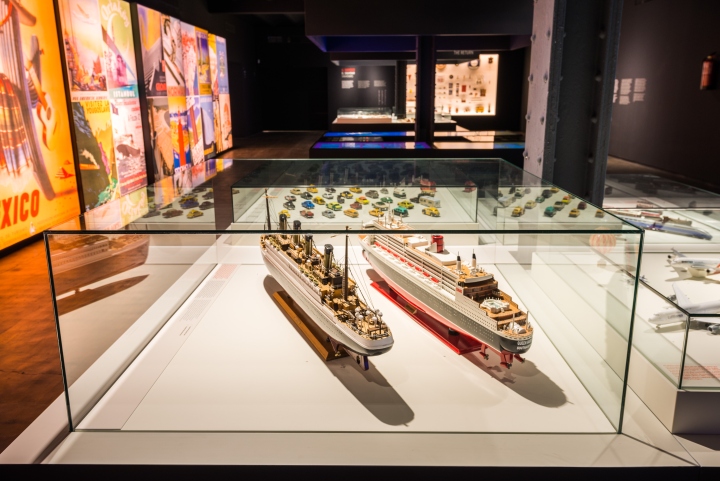
The tourism sector hosts an exhibition of international posters concerning tourism promotion, several ancient guides collections and iconographic transport miniatures, interactive tables concerning destinations, accommodation, local food, etc., a space dedicated to souvenirs, travel films of the sixties and seventies and so on.

In the room about Calella, three photos of the beach taken along the twentieth century show various approaches of the town: before the time of becoming a tourist destination, at the time when the first foreign holidaymakers arrived and finally when the tourist boom arrive.
Designed by Frederic Perers
Photography by Pep Herrero
